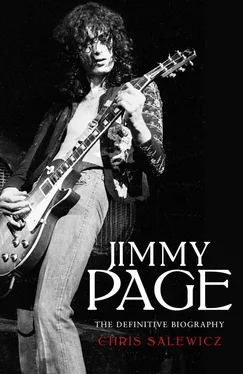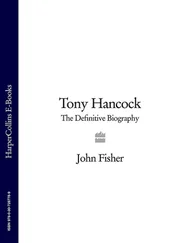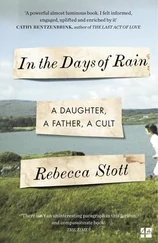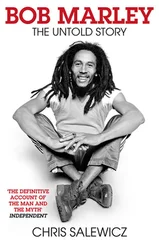1 ...7 8 9 11 12 13 ...30 After two years of life on the road, Page came down several times with glandular fever, a lingering virus that was a consequence of exhaustion and a bad diet – and possibly too regular an ingestion of the Vick’s Benzedrine strip. In October 1962, when he was only 18, ‘Nelson Storm’ quit the Neil Christian outfit.
Almost immediately he enrolled at Sutton Art College in Surrey to study painting, a love almost as great as the guitar. Needless to say, Page’s love of music was undimmed, and he had extremely broad taste, eagerly lapping up classical music, both old and new, especially the groundbreaking work of Krzysztof Penderecki, the Polish composer whose 1960 work Threnody to the Victims of Hiroshima conveyed the devastation wrought on 6 August 1945 on the Japanese city. Page’s study of Penderecki’s work would be reflected much later in his use of the violin bow on his guitar.
‘I was travelling around all the time in a bus,’ he told Cameron Crowe in Rolling Stone in 1975. ‘I did that for two years after I left school, to the point where I was starting to get really good bread. But I was getting ill. So I went back to art college. And that was a total change in direction … As dedicated as I was to playing the guitar, I knew doing it that way was doing me in forever. Every two months I had glandular fever. So for the next eighteen months I was living on ten dollars a week and getting my strength up. But I was still playing.’
Only days after Jimmy Page left Neil Christian and the Crusaders he experienced something of an epiphany. For the very first time a package tour of American blues artists was scheduled to play in the United Kingdom. Following concerts in Germany, Switzerland, Austria and France, the American Folk Blues Festival had a date scheduled on 22 October 1962 at Manchester’s Free Trade Hall, with both afternoon and evening performances. On the bill were Memphis Slim, Sonny Terry and Brownie McGhee, Helen Humes, Shakey Jake Harris, T-Bone Walker and John Lee Hooker.
Page arranged to go with his friend David Williams, but opted to catch the train and meet him in Manchester rather than travel together by road. By now he seemed to have registered that one of the causes of his ill health had been squeezing into an uncomfortable van to travel those long distances across Britain with the Crusaders.
David Williams travelled with a trio of companions he had met at Alexis Korner’s Ealing Jazz Club, in reality no more than a room in a basement off Ealing Broadway in West London. Fellow aficionados of this music, these companions had recently formed a group. Its name? The Rolling Stones. These new friends were called Mick Jagger, Keith Richards and Brian Jones.
Although the first set of the American Folk Blues Festival rather failed to fire, perhaps an expression of the wet Manchester afternoon that it was, the evening house more than lived up to their expectations. Especially when John Lee Hooker closed the show with a brief, three-song set, accompanied only by his guitar. ‘It may have been a damp and grey Manchester outside, but we thought we were sweltering down on the Delta,’ said Williams. Hooker had been preceded by T-Bone Walker, the ‘absolute personification of cool’, according to Williams. ‘He performed his famous “Stormy Monday” on his light-coloured Gibson. His playing seemed effortless, and his set just got better and better as he dropped the guitar between his legs and then swung it up behind his head for a solo. I did not look at Jim, Keith or any of the others while this was all going on, but I can tell you that afterwards they were full of praise and mightily impressed.’
Page, Jagger, Richards, Jones and Williams then drove back to London through the night, Jones nervous about the rate of knots at which they were travelling. In 1962 the M1, Britain’s only motorway, extended no further from London than to the outskirts of Birmingham, a hundred miles north of the capital. ‘Eventually we made it to the motorway and came across an all-night service station. Again, for most of us this was a real novelty. However, Jim was a seasoned night-traveller by now and he clearly enjoyed talking me through the delights of the fry-up menu. After a feed we resumed our journey, and it was still dark when we reached the outskirts of London.’
Early on in his time at Sutton Art College, Page encountered a fellow student called Annetta Beck. Annetta had a younger brother called Jeff, who had recently quit his own course at Wimbledon Art College for a job spray-painting cars. Hot-rod-type motors would become an obsession for Beck.
In a 1985 radio interview on California’s KMET, Beck told host Cynthia Foxx: ‘My older sister, as I remember it, came home raving about this guy who played electric guitar. I mean she was always the first to say, “Shut that racket up! Stop playing that horrible noise!” And then when she went to art school the whole thing changed. The recognition of somebody else doing the same thing must have changed her mind. She comes home screaming back into the house saying, “I know a guy who does what you do.” And I was really interested because I thought I was the only mad person around. But she told me where this guy lived and said that it was okay to go around and visit. And to see someone else with these strange-looking electric guitars was great. And I went in there, into Jimmy’s front room … and he got his little acoustic guitar out and started playing away – it was great. He sang Buddy Holly songs. From then on we were just really close. His mum bought him a tape recorder and we used to make home recordings together. I think he sold them for a great sum of money to Immediate Records.’
Beck and Page began to spend afternoons and evenings at Page’s parents’ home, playing together and bouncing ideas off each other. Page would be playing a Gretsch Country Gentleman, running through songs like Ricky Nelson’s ‘My Babe’ and ‘It’s Late’, inspired by Nelson’s guitarist James Burton – ‘so great’, according to Beck. They would play back and listen to their jams on Page’s two-track tape recorder. The microphone would be smothered under one of the sofa’s cushions when they played. ‘I used to bash it, and it would make the best bass drum sound you ever heard!’ said Beck.
But this extra-curricular musical experimentation was not necessarily in opposition to what Page was doing on his art course at Sutton Art College: rather, these two aspects of himself complemented each other. Many years later, when asking Page about his career with Led Zeppelin, Brad Tolinski suggested that ‘the idea of having a grand vision and sticking to it is more characteristic of the fine arts than of rock music: did your having attended art school influence your thinking?’
‘No doubt about it,’ Page replied. ‘One thing I discovered was that most of the abstract painters that I admired were also very good technical draftsmen. Each had spent long periods of time being an apprentice and learning the fundamentals of classical composition and painting before they went off to do their own thing.
‘This made an impact on me because I could see I was running on a parallel path with my music. Playing in my early bands, working as a studio musician, producing and going to art school was, in retrospect, my apprenticeship. I was learning and creating a solid foundation of ideas, but I wasn’t really playing music. Then I joined the Yardbirds, and suddenly – bang! – all that I had learned began to fall into place, and I was off and ready to do something interesting. I had a voracious appetite for this new feeling of confidence.’
Despite starting his studies at Sutton, Page would, from time to time, step in during evening sessions with Cyril Davies’s and Alexis Korner’s R&B All-Stars at the Marquee Club and other London venues, such as Richmond’s Crawdaddy Club or at nearby Eel Pie Island. Soon he was offered a permanent gig as the guitarist with the R&B All-Stars, but he turned it down, worried that his illness might recur.
Читать дальше












